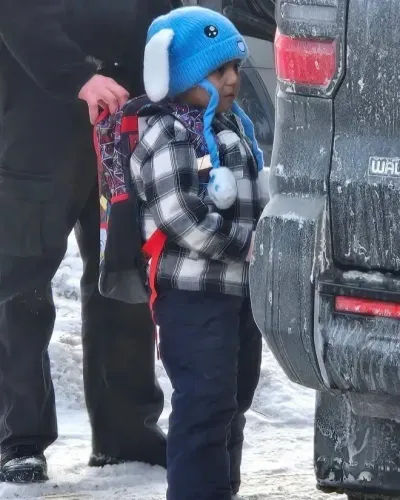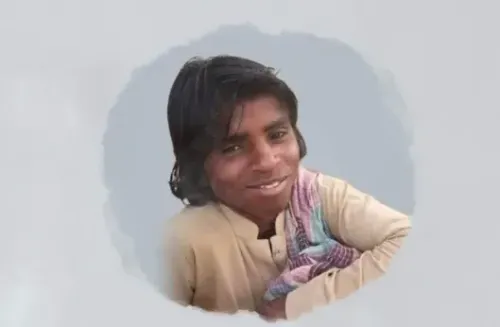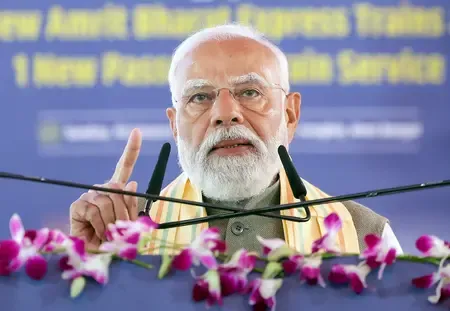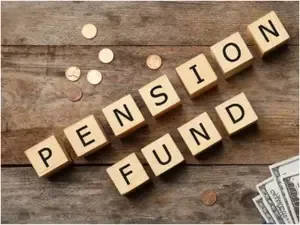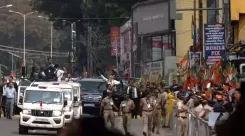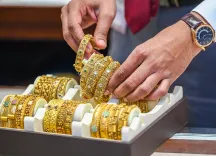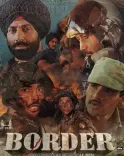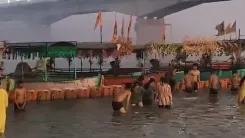Why is the Manipur Government Holding the Sangai Festival Amidst Ethnic Violence?
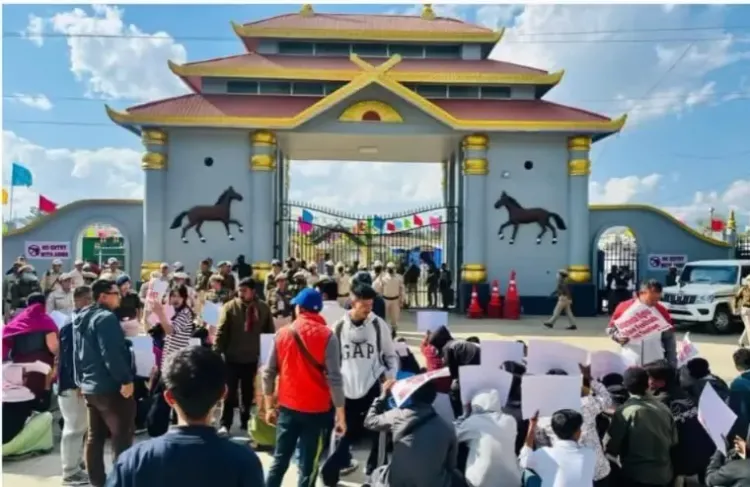
Synopsis
Key Takeaways
- COCOMI criticizes the government for hosting the Sangai Festival amidst ethnic violence.
- Protests have erupted across the state, demanding justice and rehabilitation for IDPs.
- Security forces clashed with demonstrators during the festival's inauguration.
- The government aims to promote economic revival and community harmony through the festival.
- Relief and rehabilitation remains a top priority according to the Chief Secretary.
Imphal, Nov 25 (NationPress) The Coordinating Committee on Manipur Integrity (COCOMI), a coalition of various Meitei civil society groups, has sharply criticized the state administration for proceeding with the Sangai Tourism Festival while the ongoing ethnic turmoil remains unresolved and the rehabilitation of displaced individuals is not ensured.
As the ten-day Sangai Tourism Festival commenced on November 21 at Hapta Kangjeibung in Imphal, numerous groups of Internally Displaced People (IDPs) and other Civil Society Organizations (CSOs), including COCOMI, initiated a cease-work strike, calling for a public boycott of the festival and organizing protests.
On its opening day, Manipur Governor Ajay Kumar Bhalla inaugurated the festival in a subdued manner. COCOMI convenor, Information and Public Relations Committee Laikhuram Jayenta, stated that the government proceeded with the inauguration by forcefully suppressing the protesters and disregarding public sentiment. The Meitei organization labeled two MLAs who attended the festival's inauguration on November 21 as 'Enemies of the People'.
“Across the state, protests erupted on November 21, the festival's opening, as many felt the present circumstances in Manipur were unsuitable for celebrations. Reports indicated that several individuals suffered injuries during the demonstrations,” the statement disclosed.
On that day, at least two police officers, including a Deputy Superintendent of Police (DSP), were injured following a clash in Imphal East district concerning the festival, which the government promotes as a measure to restore normalcy in the conflict-ridden state.
A police official noted the clashes began when security forces obstructed demonstrators, including many displaced individuals, from marching towards the festival venue. He reported that protestors threw stones at the police, prompting security personnel to deploy tear gas shells.
On November 24, clashes broke out again, resulting in injuries to at least three IDPs and two police personnel when hundreds of IDPs in relief camps confronted security forces at Pukhao and near the Dolaithabi Dam in Imphal East district while trying to return to their hometowns.
A police spokesperson indicated that the conflict erupted when men and women from the areas of Ekou, Dolaithabi, and Yengkhuman, currently residing in relief camps, attempted to return home but were halted by security personnel.
Security forces resorted to lathi-charges and fired tear gas to disperse the demonstrators, leading to injuries among three IDPs and two policemen.
An IDP representative remarked that the government’s organization of the annual Sangai Tourism Festival from November 21 to 30 implies that normalcy has returned in their regions, warranting their return home instead of remaining in relief camps.
The Manipur government has called upon all citizens, particularly IDPs and stakeholders, to fully cooperate in ensuring the festival's success.
In an appeal, Chief Secretary Puneet Kumar Goel stated that the festival signifies a collective commitment to progress, emphasizing that complete support and participation would help the state regain momentum.
He highlighted that economic revival, tourism promotion, youth empowerment, and community harmony are crucial for placing Manipur back on a path of sustainable growth.
According to the Chief Secretary, the government acknowledges the challenges faced by displaced individuals, prioritizing relief and rehabilitation. Goel elaborated on the funding allocated for IDP welfare and the enhancement of livelihood opportunities for affected populations.


